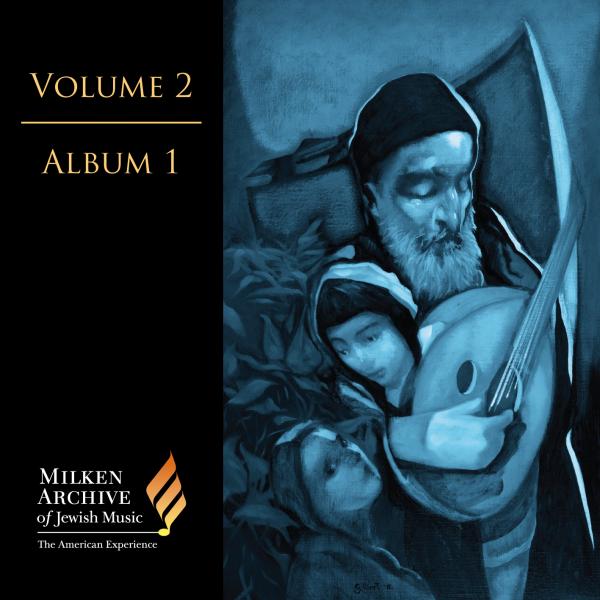Tracks
Liner Notes
Samuel Adler has written several settings of l’kha dodi, the kabbalistic prayer text in the kabbalat shabbat (welcoming the Sabbath) service that precedes the Sabbath eve (ma’ariv) service in the traditional order of prayer. (For further comments on the text and its history, see the notes to Charles Davidson's ...And David Danced Before the Lord). This particular l'kha dodi differs from the composer’s others in that it was inspired by Sephardi repertoire.
For this setting Adler used one of the oldest and most widely known traditional western, or Amsterdam, Sephardi l’kha dodi tune versions, which is often known also as the Portuguese tradition in European and English sources. (For a history of this tune, see the notes to Herman Berlinski’s Avodat Shabbat in Volume 7.) Adler has given it a liberal, flexible treatment, invoking it primarily for the refrains and drawing on its basic contour and character for the original material of the strophes. It is an abbreviated three-strophe version, suitable for Reform services as well as those of Conservative movement orientation that use organ and other instruments. (The Union Prayerbook, for example, which for many decades was the quasi-official prayerbook of the Reform movement, eliminated six of the nine stanzas of the poem; in many Conservative-affiliated congregations as well, not all nine strophes of l’kha dodi tunes are always sung, even though most prayerbooks used by those congregations include the entire text.) This setting by Adler includes the first (shomer v’zakhor), the fifth (hitor’ri), and the ninth and final stanza (bo’i v’shalom)—in addition, of course, to the eponymous refrain. It is no mere arrangement of the traditional Sephardi tune, but rather an original composition based on one of its many variants and developed from its constituent elements.
Inasmuch as this piece was intended not as an ethnomusicological exercise, but as a freer artistic creation, the tune is stylized according to Western standards. Even in its initial exposition, the melody of the refrain is compressed, for example, within a duple metrical framework; a Western-flavored cadence is employed; and there is a cautious hint of polyphony that astutely allows the identity of the tune to remain transparent. There is more counterpoint in the second appearance of the refrain, with a countermelody in the upper voices.
The importance of the role of the flute in Adler’s conception is evident from the beginning in the brief introduction, in which it functions in tandem with the organ as the melodic exponent. The first strophe is assigned to the cantor (soprano, as in this recording, or tenor), with a carefully constructed flute obligato. The final strophe, too, is a vocal solo in a duet with the flute, with organ accompaniment, and the flute is prominent contrapuntally in the refrains as well. The middle (fifth) strophe is reserved for the choir.
Lyrics
Sung in Hebrew
REFRAIN:
Beloved, come—let us approach the Sabbath bride and welcome the entrance of our Sabbath, the bride.
STROPHES 1, 5, and 9:
God, whose very uniqueness is His essence,
Whose very name is “One,”
Had us hear simultaneously the two imperatives in His Sabbath commandments:
“Guard the Sabbath,” “Remember the Sabbath”—
Two words spoken at Sinai concurrently
Were heard by Israel as one command.
To our one and unique God, and to His name,
Let there be fame, glory, and praise.
Awaken, awaken!
Your light has come.
Arise and shine,
Awake, awake—
Speak a song! Sing a poem!
The glory of the Lord is revealed to you.
Sabbath, you who are your Master’s crown,
Come in Peace, in joy, in gladness
Into the midst of the faithful
of a remarkably special people.
Come, O Sabbath bride—
Bride, come!
Credits
Composer: Samuel AdlerPerformers: Deborah Adler, Flute; Samuel Adler, Conductor; Roslyn Jhunever Barak, Cantor; Aaron Miller, Organ; Rochester Singers
Publisher: Transcontinental
Translation: M M L
